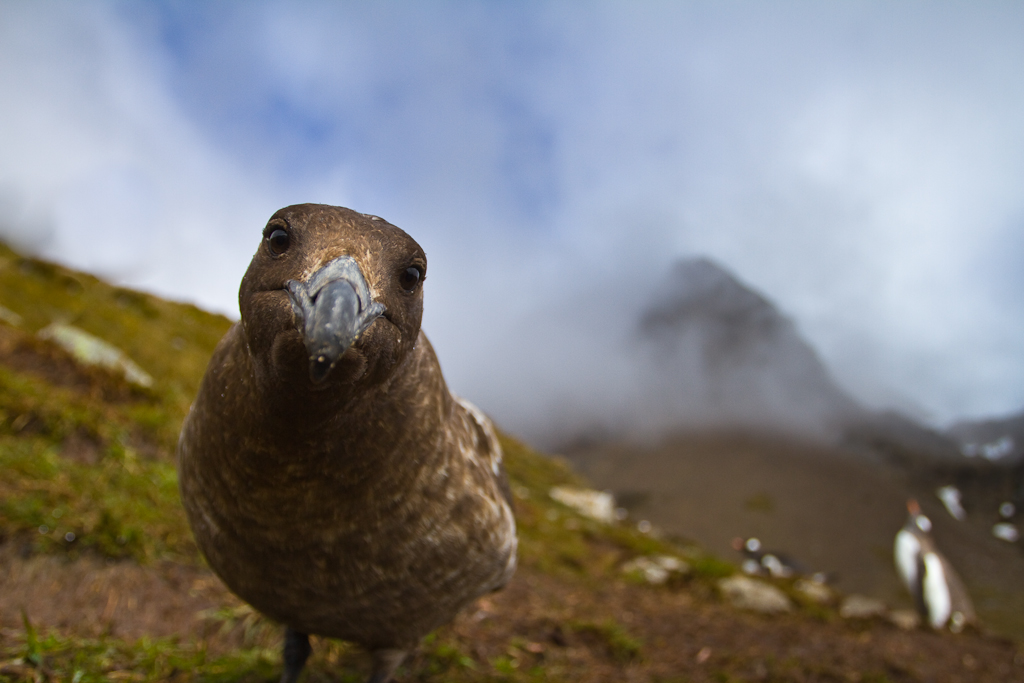
Canon 7d, 17-40 f4L @17mm, f4, 1/2500th, ISO 200
It's a remote and isolated oceanic island, far, far from the mainland of South America and even farther from Africa. South Georgia Island has no native land mammals (though rats, mice, and reindeer have been introduced). No foxes, no wolves, no badgers, coyotes, squirrels, or weasels. It would seem that the local nesting birds, the penguins and petrels, would have it easy.
They don't.
While at sea, where the birds of South Georgia spend the majority of their time, they are hunted mercilessly by Leopard Seals and Orcas. On shore, they escape the threat of their aquatic predators, but not threat of the Skuas, Gulls, and Giant Petrels that are constantly looking for an opportunity to steal an unguarded egg or small chick.
The Skuas in particular are almost universally despised by visitors to the Southern Ocean. I say almost universally, because I happen to quite like them. Like any predator, they can brutal. On the South Orkneys we watched for several minutes as a pair of Skuas pulled an Adelie Penguin Chick away from its parents and off a short cliff. The downy chick tumbled down the rocks to land at the bottom where it was set upon by the Skuas. Over the course of a few minutes, as the chick tried to escape, struggle and fight back, the Skuas killed and began to eat it. It was, in no uncertain terms, brutal.
Yet the Skuas have chicks to feed as well. They are doing what is necessary to survive, however unpleasant that may be to our eyes.
It is not their brutality that I like, but their fearlessness. Skuas have no predators on land and no reason to fear people. Like the Caracaras of the Falklands they are more than willing to approach a person. Particularly if they have reason to suspect a meal might be in the making. This Skua came up to me as I lay prone on the grass shooting the wide-angle Gentoo image from the previous post. My low angle allowed me to get this rather distinctive and humorous portrait of the bird. From a standing position the shot would not have been so compelling.
Here is a photo tip for the Southern Ocean: get low, lay still, and wait for curious predators (they are sure to arrive).

No comments:
Post a Comment